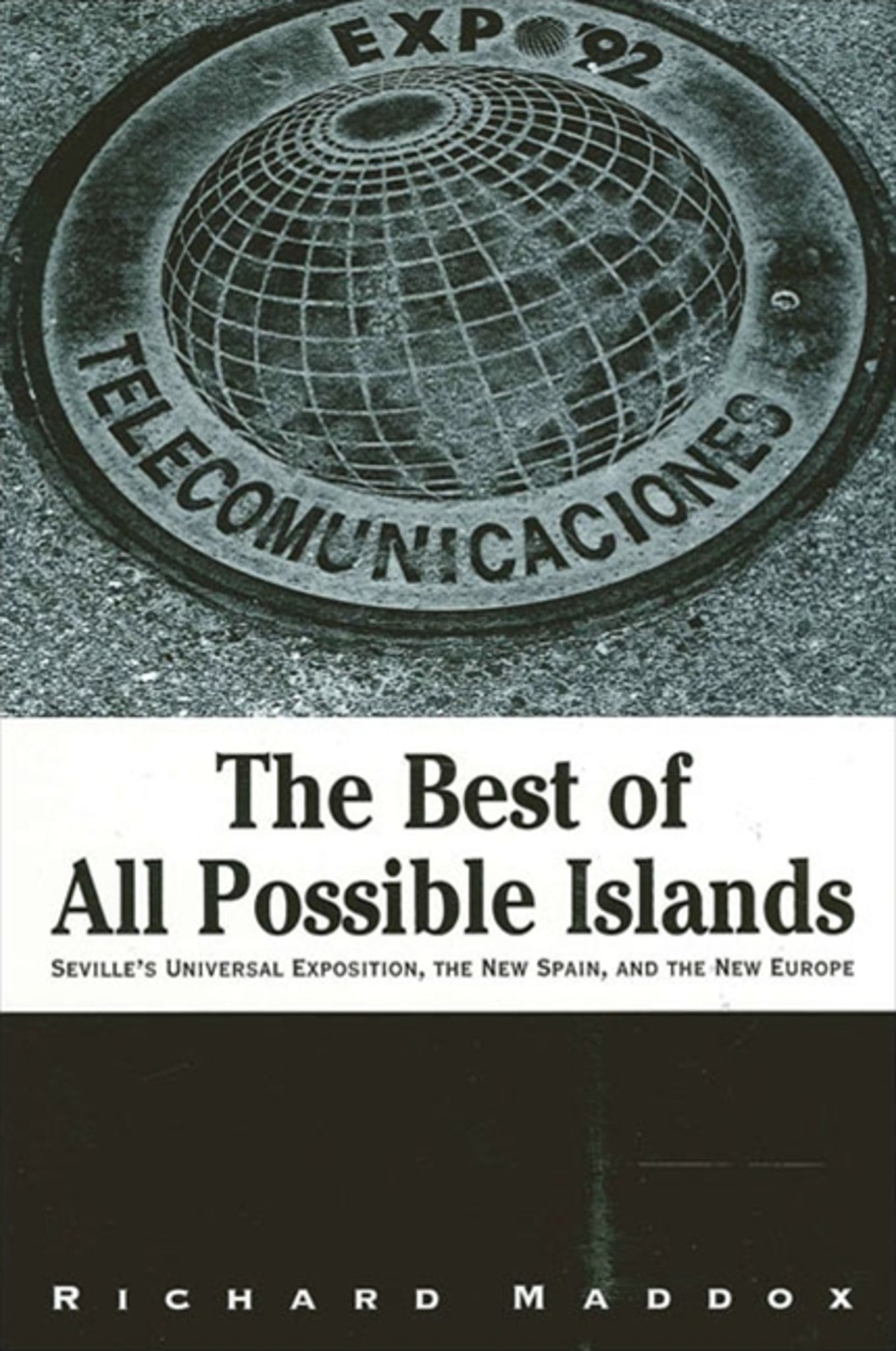We're sorry. An error has occurred
Please cancel or retry.
The Best of All Possible Islands

Some error occured while loading the Quick View. Please close the Quick View and try reloading the page.
Couldn't load pickup availability
- Format:
-
15 July 2004

Uses the world's fair of 1992 to spotlight changes in the political cultures of Spain and Europe.
The 1992 world's fair in Seville serves as a vantage point from which to examine Spain's developing democracy and Europe's emerging unification, according to Richard Maddox in The Best of All Possible Islands. Visited by over fourteen million people, the Seville Expo drew the participation of more than one hundred countries and dozens of corporations. As part of Spain's "miraculous year" in which Barcelona hosted the summer Olympics and Madrid was designated the Cultural Capital of Europe, the Expo advanced a remarkably optimistic, cosmopolitan, and liberal vision of the past, present, and future of the "new Spain" and the "new Europe." Yet no aspect of this vision went unchallenged, and the Expo was at the center of fierce political rivalries and dramatic manifestations of popular discontent.
In an engaging and accessible narrative, Richard Maddox demonstrates how visitors and local residents understood the significance of the event in ways that largely escaped the knowledge and control of the Expo's organizers. Understanding how and why this occurred casts critical light on the transformation of Spain since the end of the Franco dictatorship in 1976 and illuminates some of the key cultural and political dilemmas that processes of European and global integration pose for citizens of democratic societies.


Acknowledgments
PART I: GUIDELINES: CONTEMPORARY ETHNOGRAPHY AND THE NEW WORLD ORDER IN SPAIN
1. The Best of All Possible Islands and the Miraculous Year
2. Possible Expos: Academic Meanderings from Tradition to Modernity and Beyond
3. A Pocket History of the Liberalization of Modern Spain, with Observations about Its Relevance for an Understanding of Expo '92
4. Relocating the Subject: Macroethnography and Cosmopolitan Liberalism
PART II: ORIGINS AND STRUCTURES: THE STATE, THE PARTY, AND THE EXPO
5. Royal Patronage of a Noble Tradition: Madrid, Santo Domingo, Washington, and Paris, 1976–1982
6. Seville, the Socialist Party, and the Commissioner General, 1982–1987
7. The Voyages and Visits of the Commissioner General
8. The Island World Takes Form
PART III: CONJUNCTURES AND CONFLICTS: TECHNOBUREAUCRACY AND THE CITY
9. The Two-Headed Monster
10. The Monster and Seville
11. Here Comes Everybody
12. War, Stalemate, and Cultural Politics
PART IV: PAVILIONS AND PERFORMANCES: THE EXPO AS CULTURAL OLYMPICS
13. Media Agon
14. Varieties of Europeanism
15. Davids and Goliaths of the New World Order
16. The Many Spains
PART V: DISPOSITIONS AND PRACTICES: THE SENSE OF FREEDOM AND THE POLITICS OF DAILY LIFE
17. Expo People and the Change in Spain
18. Officials and Workers
19. Visitors
20. Renouncers and Resisters
PART VI: THE AFTERMATH
21. Closing Days and Parting Shots
22. Wandering in the Wilderness: From Cartuja '93 to Sevilla Technopolis
23. The Theme Park of Memory
24. The Expo and the New Millennium
Notes to the Text
Official Documents and Publications Cited
Newspapers Cited
References Cited
Index



